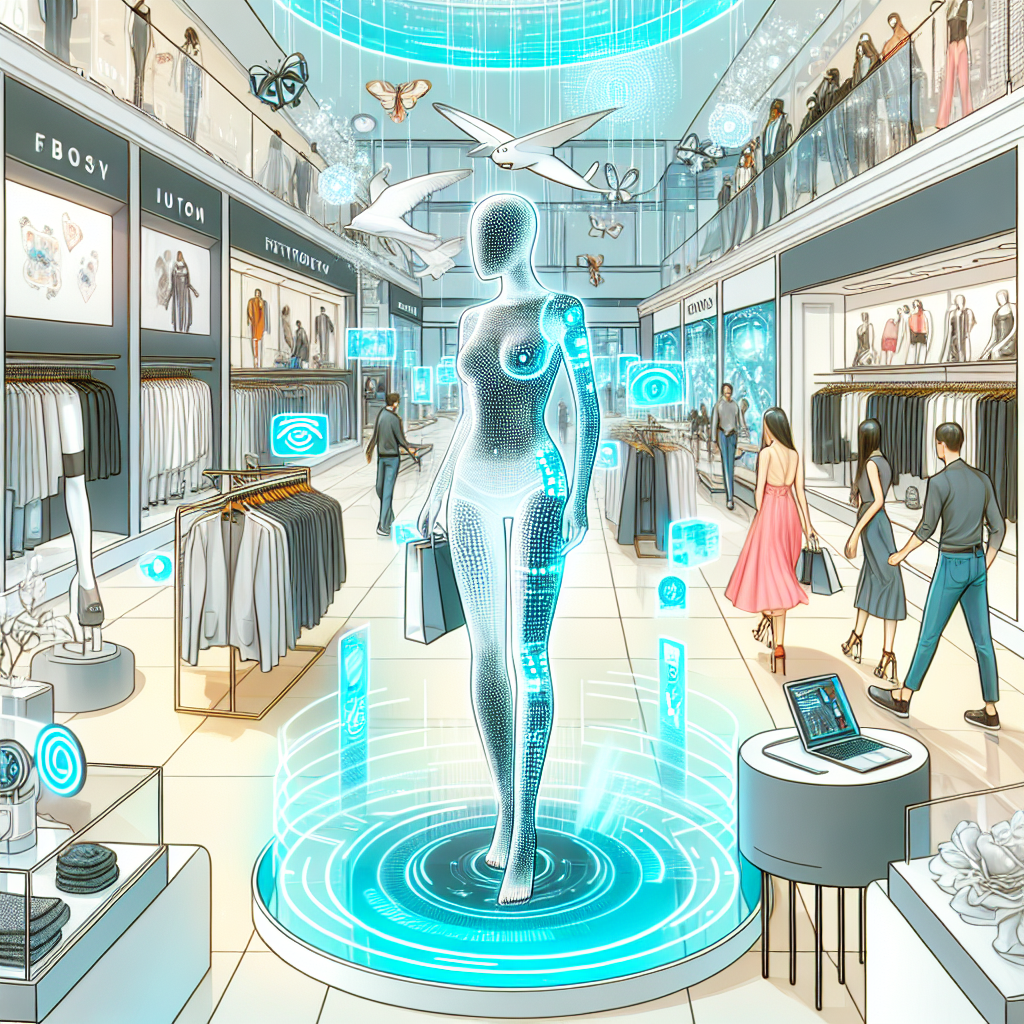AI and the Future of Fashion Retail: A Look Ahead to 2023
The fashion retail industry is constantly evolving, with new trends and technologies shaping the way consumers shop. One of the most significant advancements in recent years has been the integration of artificial intelligence (AI) into the retail experience. AI has the potential to revolutionize the way fashion retailers operate, from inventory management to customer service. As we look ahead to 2023, it is clear that AI will play a crucial role in the future of fashion retail.
AI in Fashion Retail
AI has already begun to make its mark on the fashion retail industry. From personalized recommendations to virtual fitting rooms, AI-powered technologies are changing the way consumers interact with brands. One of the most significant benefits of AI in fashion retail is its ability to analyze large amounts of data quickly and accurately. This allows retailers to gain insights into consumer behavior and preferences, allowing them to tailor their offerings to meet the needs of their customers.
One area where AI is already making a big impact is in the area of personalized recommendations. By analyzing a consumer’s browsing and purchasing history, AI algorithms can suggest products that are likely to be of interest to them. This not only helps consumers discover new items but also increases the likelihood of a purchase. With the rise of online shopping, personalized recommendations have become an essential tool for retailers looking to drive sales and increase customer satisfaction.
Another area where AI is having a significant impact is in inventory management. By using AI algorithms to predict demand, retailers can better manage their inventory levels and avoid stockouts. This not only reduces costs but also improves customer satisfaction by ensuring that popular items are always in stock. AI can also help retailers optimize their pricing strategies by analyzing market trends and competitor pricing to determine the best pricing strategy for each product.
AI-powered technologies are also changing the way consumers shop. Virtual fitting rooms, for example, allow consumers to try on clothes virtually, helping them to find the perfect fit without ever leaving their homes. This not only improves the customer experience but also reduces the number of returns, saving retailers time and money. AI-powered chatbots are also becoming increasingly common, providing customers with instant assistance and support whenever they need it.
Looking Ahead to 2023
As we look ahead to 2023, it is clear that AI will continue to play a crucial role in the future of fashion retail. Retailers will increasingly rely on AI-powered technologies to drive sales, improve customer satisfaction, and streamline their operations. Virtual reality (VR) and augmented reality (AR) are also likely to become more prevalent, allowing consumers to experience products in a more immersive way.
One area where AI is expected to have a significant impact in the coming years is in the area of sustainability. With consumers becoming increasingly aware of the environmental impact of the fashion industry, retailers are under pressure to adopt more sustainable practices. AI can help retailers track and reduce their carbon footprint by optimizing their supply chain and manufacturing processes. By analyzing data on energy consumption, waste production, and transportation emissions, retailers can identify areas where they can make improvements and reduce their environmental impact.
AI can also help retailers improve their social responsibility efforts by ensuring that their products are ethically sourced and manufactured. By analyzing data on labor practices and supply chain transparency, retailers can ensure that their products are produced in a socially responsible manner. This not only helps to build trust with consumers but also ensures that retailers are doing their part to support ethical and sustainable practices in the fashion industry.
FAQs
Q: How is AI changing the way consumers shop for fashion?
A: AI is changing the way consumers shop for fashion by providing personalized recommendations, virtual fitting rooms, and instant assistance through chatbots. These technologies help consumers find the perfect items, try them on virtually, and get support whenever they need it.
Q: How can AI help retailers improve their sustainability efforts?
A: AI can help retailers improve their sustainability efforts by analyzing data on energy consumption, waste production, and transportation emissions. By identifying areas where they can make improvements, retailers can reduce their environmental impact and adopt more sustainable practices.
Q: What are some of the benefits of AI in fashion retail?
A: Some of the benefits of AI in fashion retail include personalized recommendations, improved inventory management, virtual fitting rooms, and instant assistance through chatbots. These technologies help retailers drive sales, improve customer satisfaction, and streamline their operations.
Q: What are some of the challenges of implementing AI in fashion retail?
A: Some of the challenges of implementing AI in fashion retail include data privacy concerns, the need for skilled AI professionals, and the cost of implementing AI technologies. Retailers must also ensure that AI is used ethically and transparently to maintain consumer trust.
In conclusion, AI is set to revolutionize the fashion retail industry in the coming years. By leveraging AI-powered technologies, retailers can drive sales, improve customer satisfaction, and adopt more sustainable practices. As we look ahead to 2023, it is clear that AI will play a crucial role in shaping the future of fashion retail. Retailers that embrace AI and adapt to the changing landscape of the industry will be well-positioned to succeed in the years to come.

